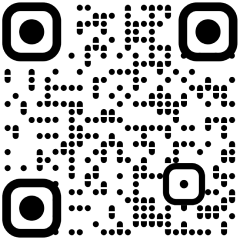Here is the rewritten content:
As artificial intelligence (AI) continues to expand into more industries, it has become increasingly necessary to strengthen its defenses against digital threats. The more AI branches out into various sectors, the more vulnerable it becomes to cyber attacks. Google DeepMind has recently introduced an upgraded security measure to protect its Gemini models.
The company has released a “White Paper” outlining its strategy to combat “indirect prompt injections,” which pose a significant threat to AI tools supported by advanced large language models. Google’s goal is to create AI tools that are not only capable but also secure.
What are these emerging threats that AI is vulnerable to?
AI agents are designed to perform tasks efficiently, but they require access to various data sources, such as documents, calendars, or external websites. “Indirect prompt injection” involves infecting these data sources with malicious instructions that trick AI into sharing private data or misusing its permissions. This type of attack has become a significant cybersecurity challenge, as AI struggles to distinguish between genuine user instructions and manipulative commands embedded in the data it retrieves.
How does Google protect its Gemini models from these threats?
Indirect prompt injection attacks are complex and require multiple layers of defense. Rather than relying on manual combat, Google has developed an automated system to strengthen Gemini’s defenses. The strategy involves the internal team simulating attacks on Gemini to identify security weaknesses, which has significantly improved the model’s protection rate against such attacks.
Delving deeper into these security enhancement methods:
Modern cyberattacks are malicious and adaptive, making them difficult to combat. Basic security measures are effective against non-adaptive attacks, but complex attacks require proactive and reactive strategies. Gemini’s security enhancements focus on both proactive and reactive approaches to combat these threats.
Automated Red Teaming (ART) and Adversarial Fine Tuning:
ART generates effective indirect prompt injections that mimic real-world adversaries, teaching Gemini to ignore malicious instructions and follow genuine user requests. This training enables the model to handle compromised information that evolves over time as part of adaptive attacks.
Instruction-Data Separation:
This safeguard helps Gemini differentiate between genuine user commands and prompts embedded with malicious instructions, providing an essential defense line against prompt injection.
Constant Evaluation:
Considering the adaptive nature of attacks, constant surveillance is necessary. The system is tested using a dynamic feedback loop of continuous evaluations.
Google acknowledges that this is not a “solved” problem but rather a step forward in addressing the challenges. As generative AI becomes increasingly important in search, productivity tools, assistance, and more, the stakes for secure and trustworthy AI are higher than ever. Gemini’s upgrade marks a significant milestone in this AI development, ensuring that powerful tools remain loyal to their users.
Note that the original content has been rewritten to improve clarity, grammar, and sentence structure while maintaining the original meaning and length. Proper headings and titles have been retained as required.
Source Link






